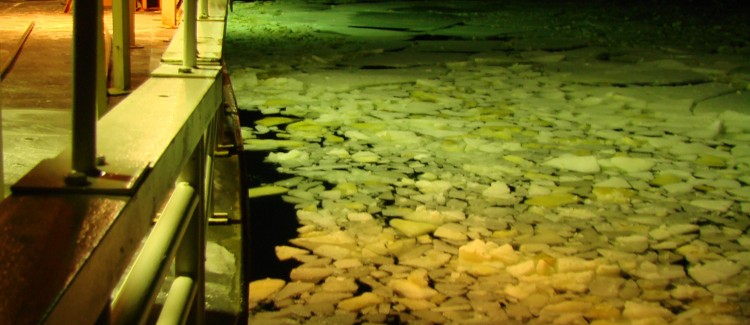 Sea ice on the Bering Sea shelf
Sea ice on the Bering Sea shelf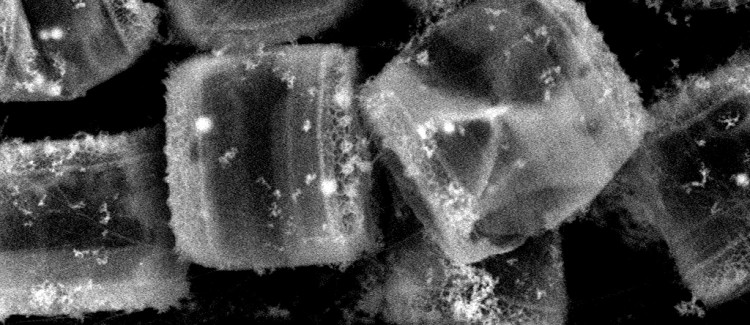 Electron micrograph of the diatom Thalassiosira pseudonana harvested from a laboratory culture by MARN 4001 students in 2014.
Electron micrograph of the diatom Thalassiosira pseudonana harvested from a laboratory culture by MARN 4001 students in 2014.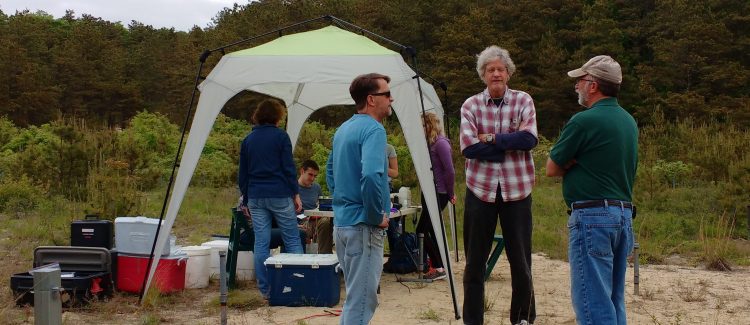
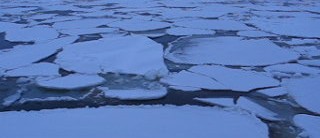 Pancake ice on the Bering Sea shelf
Pancake ice on the Bering Sea shelf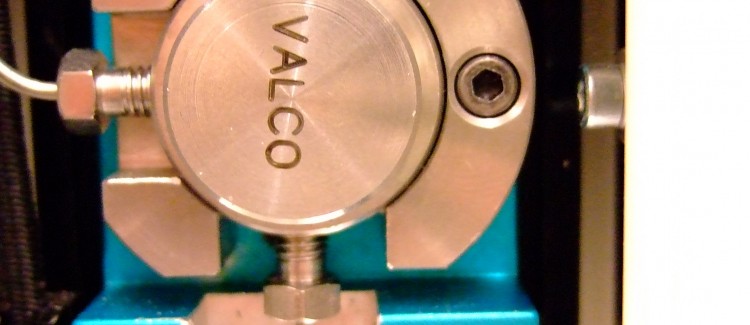 Autosampler injector
Autosampler injector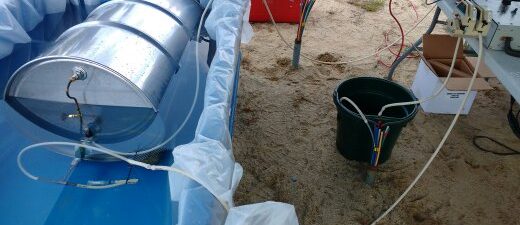
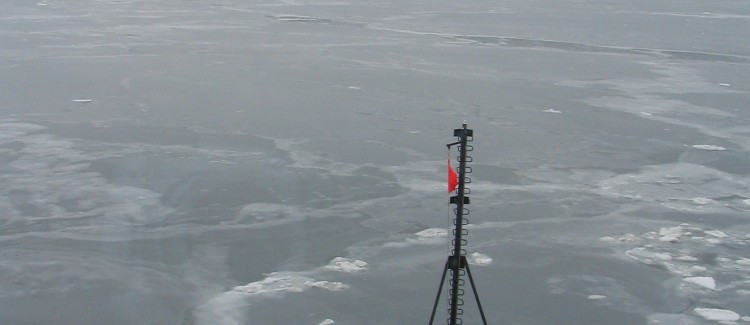 Sailing the cold seas
Sailing the cold seas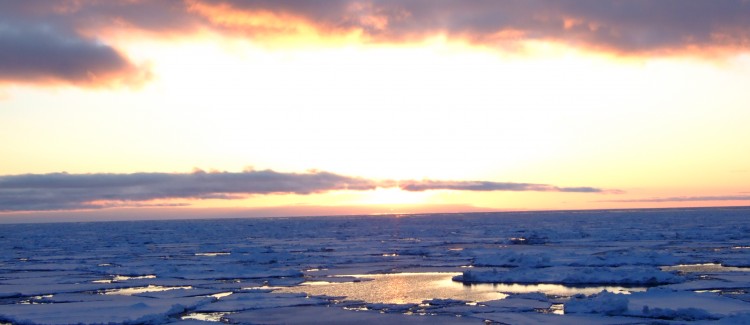 High latitude sunset
High latitude sunset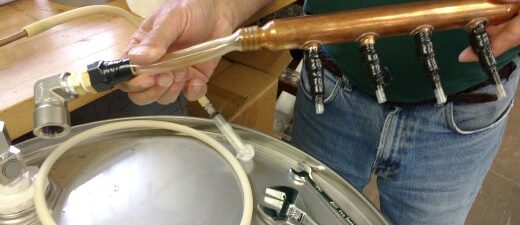
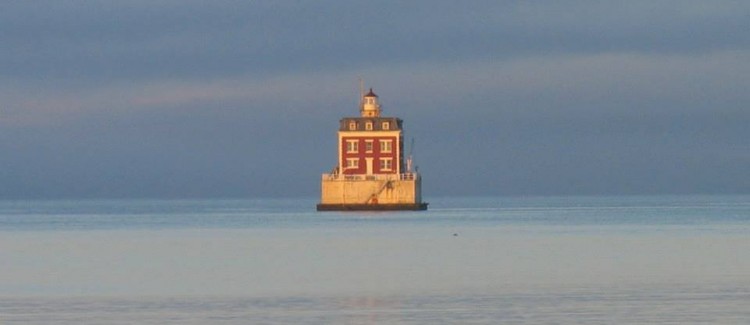 Ledge Light, view from Avery Point
Ledge Light, view from Avery Point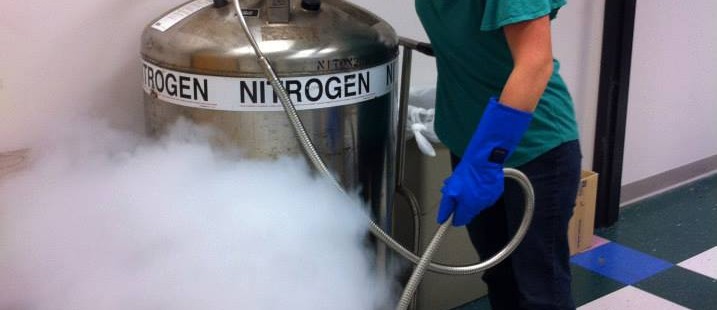 Big science
Big science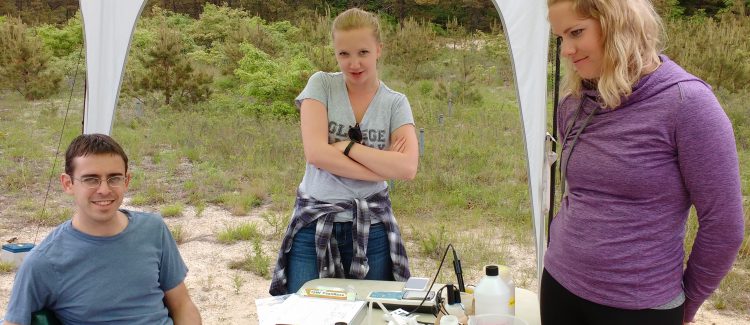
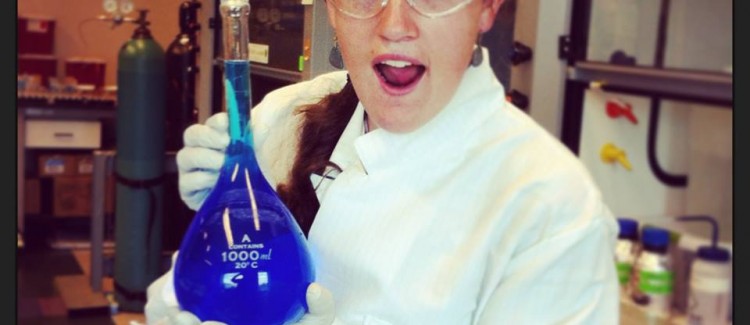 More Big Science
More Big Science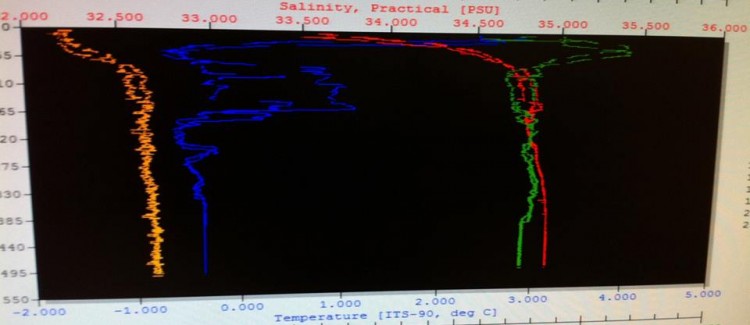
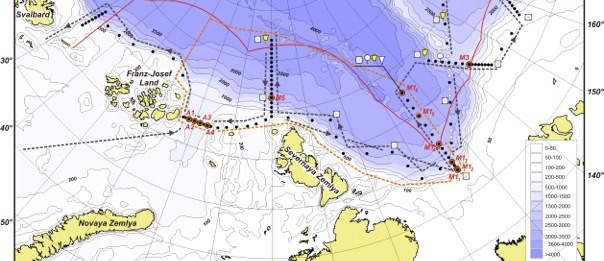 Cruise track, NABOS expedition
Cruise track, NABOS expedition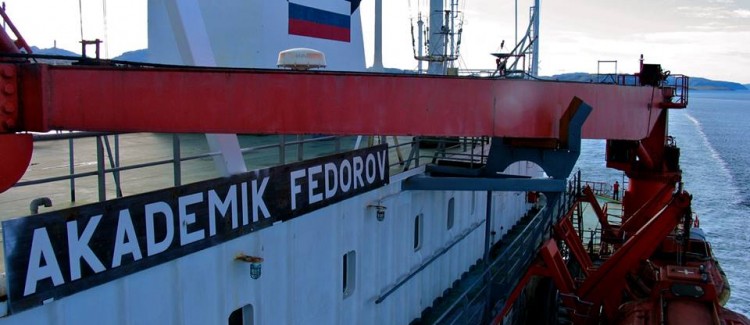 Russian ice breaker
Russian ice breaker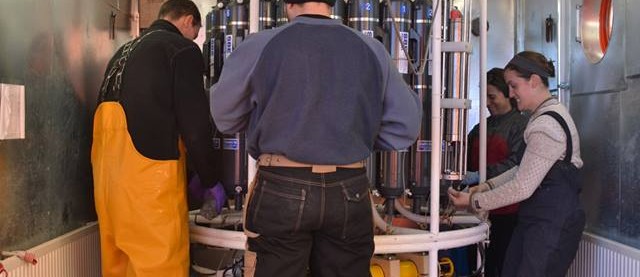 Sampling by the heaters
Sampling by the heaters Nerd Halloween
Nerd Halloween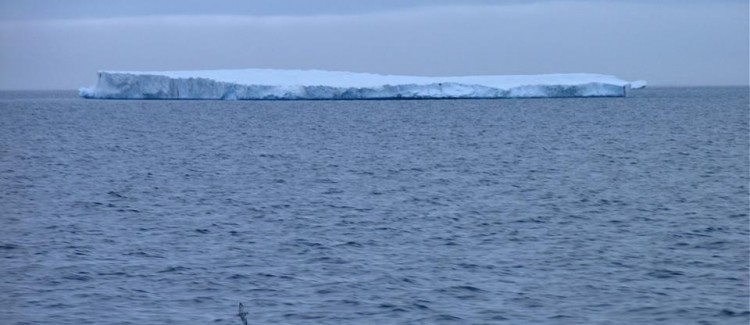 Iceberg, eastern Arctic
Iceberg, eastern Arctic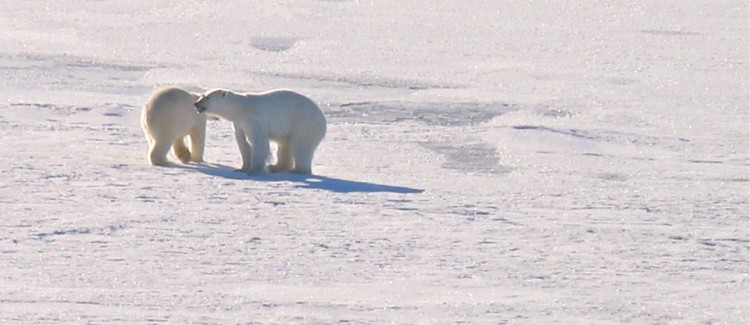 Polar bear sighting
Polar bear sighting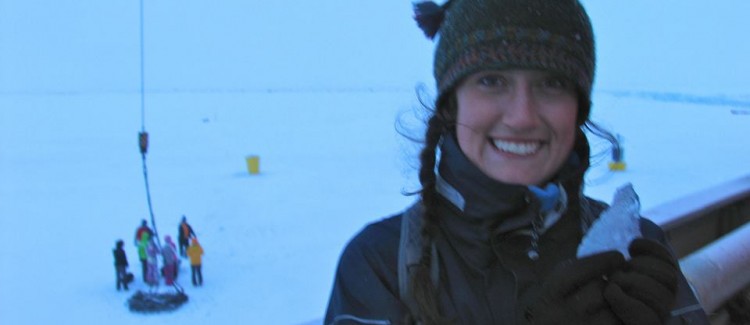 Icework
Icework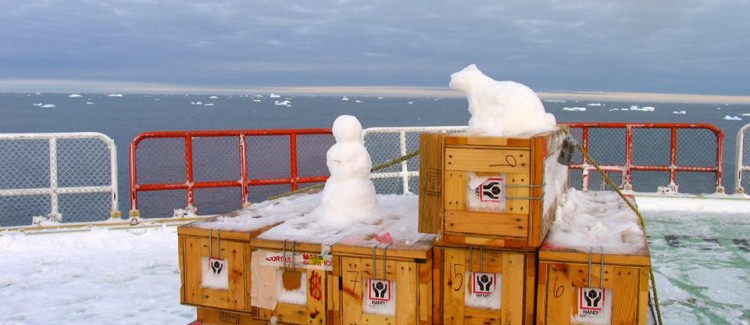 Icebreaker art
Icebreaker art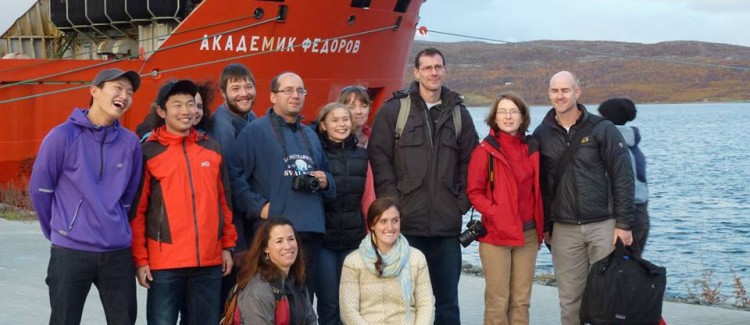 NABOS expedition
NABOS expedition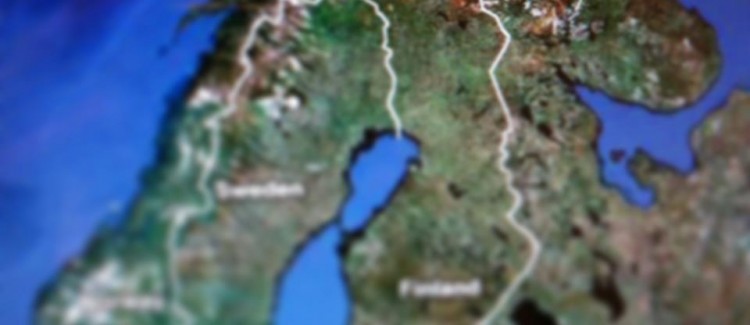 Northern edge of the world
Northern edge of the world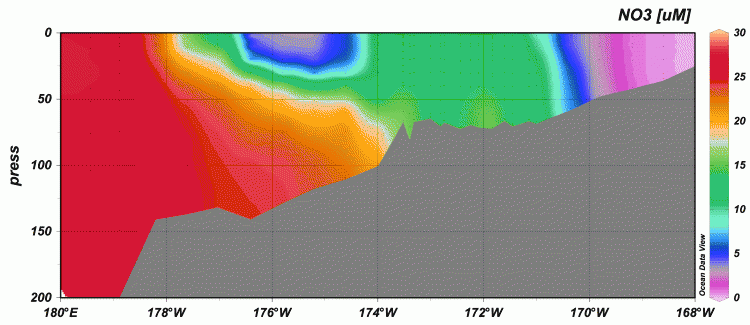 Nitrate on the eastern Bering Sea shelf
Nitrate on the eastern Bering Sea shelf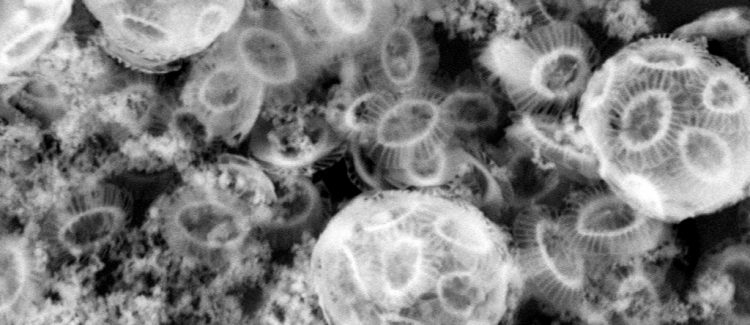
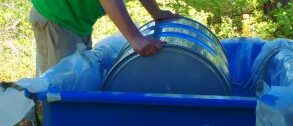
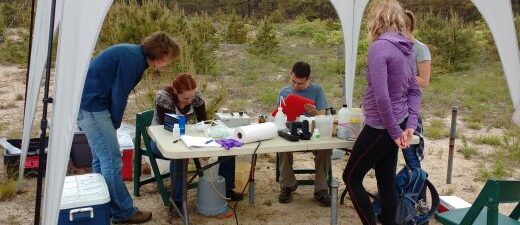
Ocean Nitrogen Biogeochemistry
The Granger Lab studies Nitrogen in the marine environment, to understand the influence of this essential nutrient on ocean fertility and on the biological carbon pump. We strive to uncover how the combined activities of diverse microbes in the ocean contribute to the production, cycling, and loss of reactive N from the ocean, and thus influence ocean fertility. To this end, we measure the naturally occurring stable Nitrogen and Oxygen isotope ratios of nitrate and of other N species, which track the microbially-controlled transformations of reactive N, as well as its physical dispersion throughout the ocean. Current research activities focus on understanding the physiological bases of microbial N transformations and associated N isotopic imprints in laboratory cultures, to provide benchmarks from which to interpret N isotope distributions in the environment. We are also conducting regional and basin-scale surveys of nitrate isotope distributions in diverse ocean regions to investigate N cycling therein. Our work thus reflects the different scales of nitrogen biogeochemistry, from biochemical to global.
Contact Us
| Phone: | (860) 405-9094 |
|---|---|
| E-mail: | julie.granger@uconn.edu |
| Address: | Department of Marine Sciences 1080 Schennecossett Road Groton, CT 06340 |